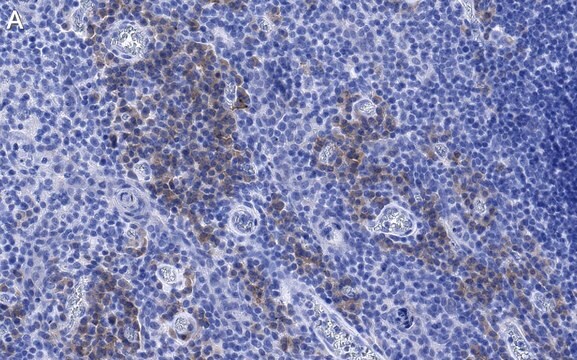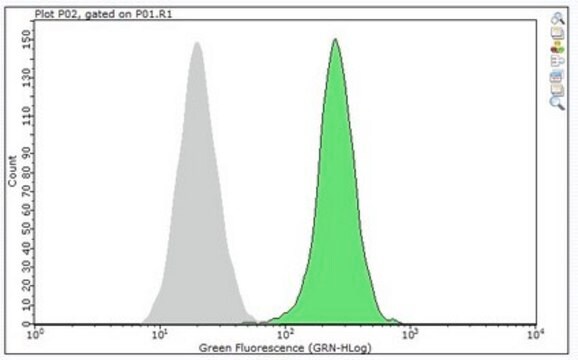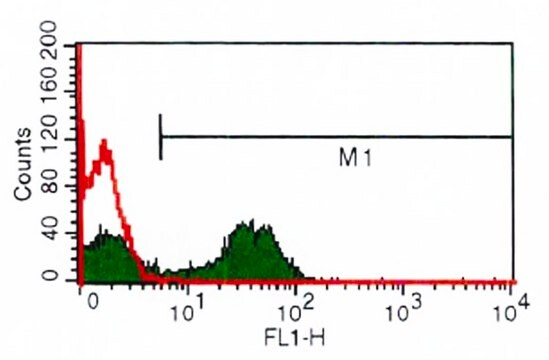CBL517
Anti-CD28 Antibody, clone 15E8
clone 15E8, Chemicon®, from mouse
Synonyme(s) :
Tp44
About This Item
Produits recommandés
Source biologique
mouse
Niveau de qualité
Forme d'anticorps
purified antibody
Type de produit anticorps
primary antibodies
Clone
15E8, monoclonal
Espèces réactives
human
Ne doit pas réagir avec
canine
Fabricant/nom de marque
Chemicon®
Technique(s)
flow cytometry: suitable
Isotype
IgG1
Numéro d'accès NCBI
Numéro d'accès UniProt
Conditions d'expédition
wet ice
Modification post-traductionnelle de la cible
unmodified
Informations sur le gène
human ... CD28(940)
Spécificité
FUSION PARTNER: SP2/0
Immunogène
Application
Inflammation & Immunology
Immunoglobulins & Immunology
This antibody will act in cell stimulation studies where it has been suggested that measuring T cell function in HIV infected asymptomatic patients may be an early indicator of AIDS, independent of CD4 + cell counts
Optimal working dilutions must be determined by the end user.
Liaison
Forme physique
Stockage et stabilité
Autres remarques
Informations légales
Clause de non-responsabilité
Vous ne trouvez pas le bon produit ?
Essayez notre Outil de sélection de produits.
Code de la classe de stockage
12 - Non Combustible Liquids
Classe de danger pour l'eau (WGK)
nwg
Point d'éclair (°F)
Not applicable
Point d'éclair (°C)
Not applicable
Certificats d'analyse (COA)
Recherchez un Certificats d'analyse (COA) en saisissant le numéro de lot du produit. Les numéros de lot figurent sur l'étiquette du produit après les mots "Lot" ou "Batch".
Déjà en possession de ce produit ?
Retrouvez la documentation relative aux produits que vous avez récemment achetés dans la Bibliothèque de documents.
Notre équipe de scientifiques dispose d'une expérience dans tous les secteurs de la recherche, notamment en sciences de la vie, science des matériaux, synthèse chimique, chromatographie, analyse et dans de nombreux autres domaines..
Contacter notre Service technique








